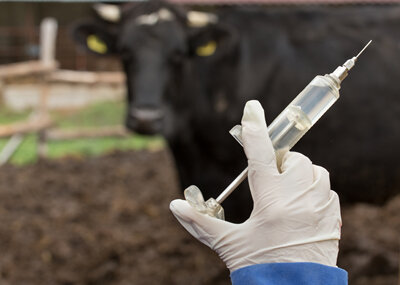
The incidence of human Leptospirosis in New Zealand is amongst the highest in the world. Increasing awareness and regulation of health and safety on farms means that you are responsible for managing the risk of human Leptospirosis infection on your farm.
The bacteria that cause Leptospirosis are shed in the urine of many animals, including dairy cattle. It then is transferred to humans through the mouth, nose, eyes, and cuts or abrasions in the skin. The bacteria can survive for a long time in a wet environment.
Working with dairy cows puts you, your family, and workers at risk –as well as anyone who has contact with cow urine on a regular basis. There are plenty of opportunities for any one of them to become infected with Leptospirosis.
Despite widespread vaccination, there are still a significant number of farms with adult dairy cattle shedding the bacteria in their urine. The most likely reason for this is that calves are not vaccinated early enough. Vaccinations need to occur before the calf is exposed to any Leptospirosis bacteria. Sheep, beef, and deer are mostly not vaccinated and provide a source of Leptospirosis for young calves.
Preventing Leptospirosis and Managing the on Farm Risk
1. Vaccination of Cattle: Vaccination prevents urinary shedding of the Leptospirosis bacteria. The vaccines are very effective providing they are given at the correct time.
We recommend:
Calves are vaccinated when the youngest calf is three months old, November or December.
A booster vaccine is given four to six weeks later, December or January. They should also be vaccinated for BVD at this time.
R2 heifers/herd will also require an annual booster.
Heifer/herd are vaccinated at the same time as the calves receive their second vaccine, January or February.
2. Education of Staff: It is your responsibility to make sure that all staff are aware of the risk of Leptospirosis, how they might become infected, and the measures they should take to decrease the risk of becoming infected.
3. Reducing the Contamination of Leptospirosis Bacteria: Waterways and effluent ponds need to be fenced. Adequate drainage at the shed, on races and around feed storage is important. Rats need to be controlled. Many of the human cases of Leptospirosis seen in dairy farm workers are caused by a strain of Leptospirosis (Leptospirosis ballum) that is shed in the urine of rats.